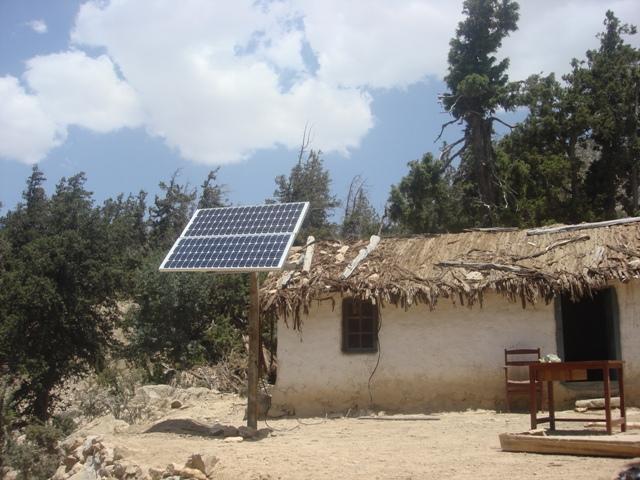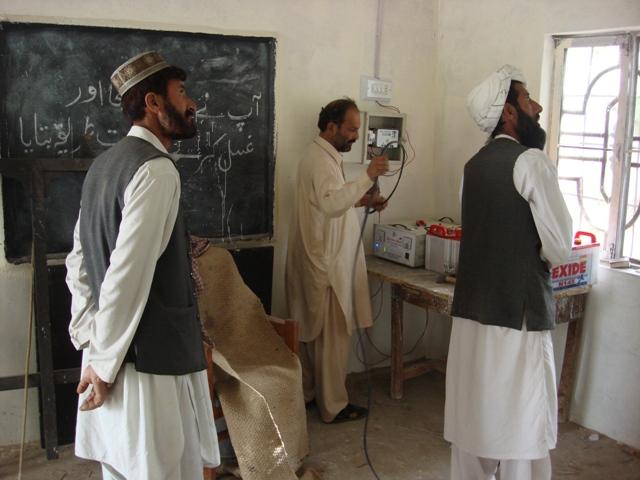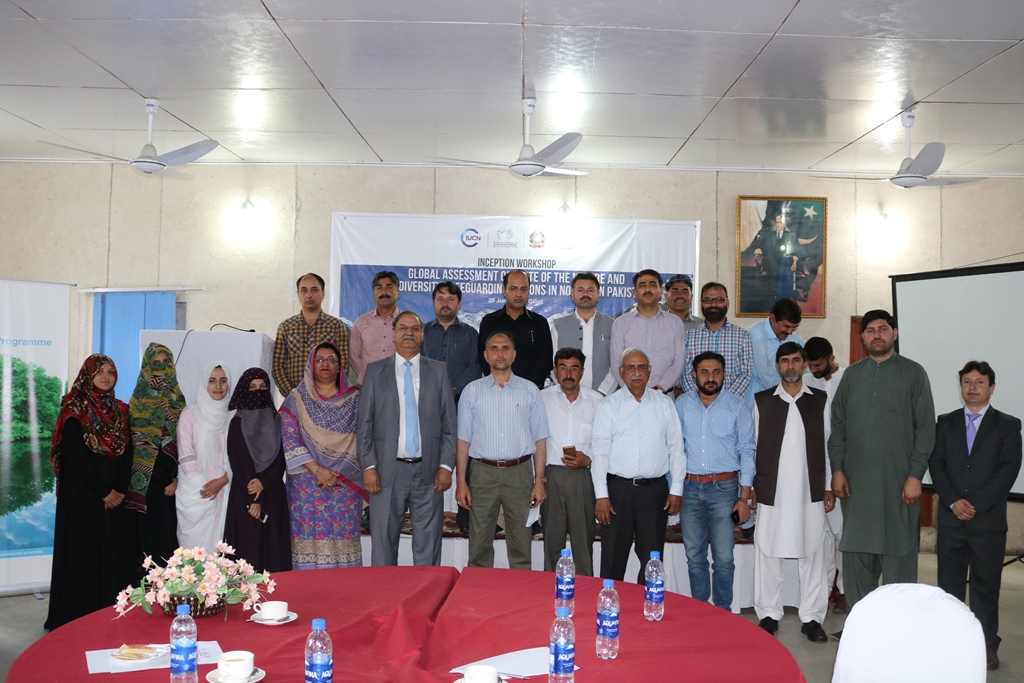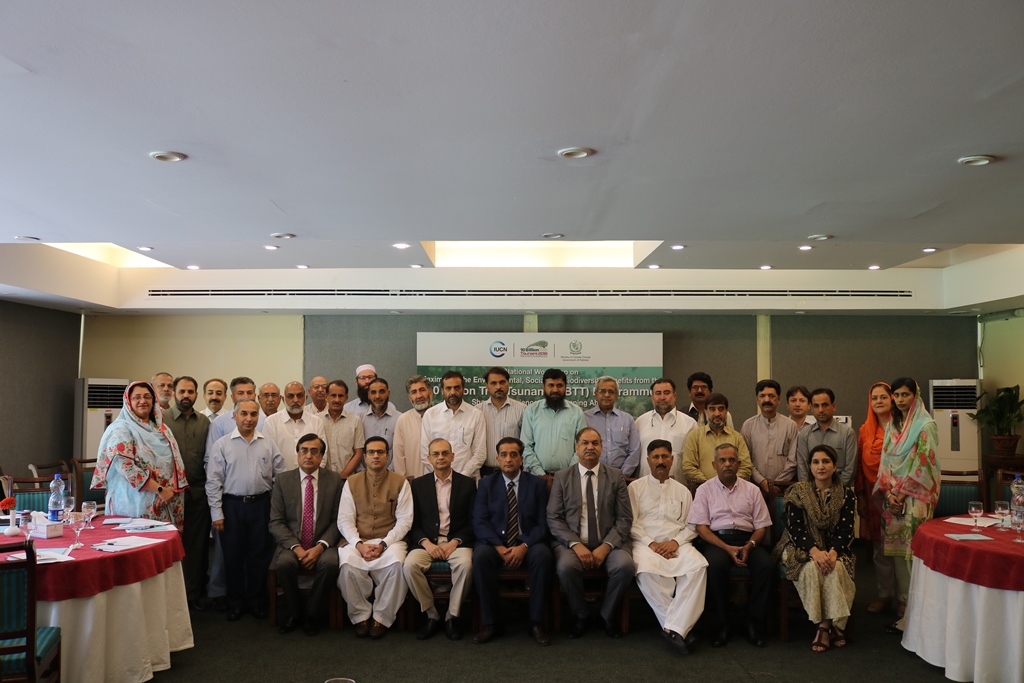Remote Villages of Ziarat Electrified through Solar Energy
Ziarat, Pakistan, July 08, 2010 IUCN, International Union for Conservation of Nature and Pakistan Council for Renewable Energy Technologies (PCRET) have collaboratively installed twelve solar energy panel systems in ten different remotely located villages of Ziarat district of Balochistan. With the successful implementation of this solar energy initiative, some of the least developed villages of Balochistan province in Pakistan have been facilitated with provision of solar generated electricity, benefiting around 123 local households.
The systems installed have a combined electricity generation capacity of 3600 watts. The first system was recently made operational at Bara Zizri village.
The solar panel equipment under this initiative was provided by PCRET for electrification of six schools and six mosques in select villages. PCRET also provided technical support in installation of the systems and training of local residents in its operation. To ensure proper maintenance and management of the solar panel system, IUCN has established community based Management Committees in the target areas.
Remote villages of Ziarat district are devoid of electricity connectivity, access to which in most cases is difficult and expensive. People have been traditionally using Juniper wood and kerosene oil lamps to illuminate their homes.
Solar energy as an alternative energy not only helps reduce energy usage costs and save the ancient Juniper trees, it is also sustainable and helps improve the socio-economic wellbeing and the quality of life of local communities living in remote villages. Furthermore, the initiative benefits the disadvantaged groups of the society, particularly women and children who will get a better opportunity to undertake household chores and studies, and use their time more productively after sunset.
This collaborative endeavor forms part of IUCN Pakistan’s project ‘Mainstreaming Biodiversity in Production Systems of Juniper Forest Ecosystem Project’. The project helps conserve the world’s second largest Juniper reserve through participatory support for ecological sustainability and provision of alternate livelihoods and production opportunities.
The Juniper Project Manager, Ghulam Qadir Shah at IUCN shared that various such interventions have been planned under the project, such as provision of fuel efficient stoves and solar geysers. He said that solar energy resource needs to be tapped and promoted, especially in areas where wood from natural forests is used as energy source, such as Juniper forests which are considered as ‘living fossils’ (Juniper forest trees in Ziarat area are 2500 years old and take centuries to grow). He further added that Pakistan has a great potential in using solar energy, as the country gets abundant sunlight throughout the year.
PCRET expert, Nadeem Zakir believed that promoting solar energy solutions is an innovative leap in addressing the energy needs and shortages faced in the country. He stressed that providing alternate energy through solar systems in such remote and hard to accessible areas is much cheaper than placing conventional transmission lines across the villages. The initial high cost is covered by low operational costs of solar panels in the long run, he added.
The initiative has been highly appreciated by the local people and requests for such schemes are pouring in from other district localities.
Notes to editors
For more information or to set up interviews, please contact:
George Sadiq, IUCN Country Office, Karachi
Tel: ++92 5861540-2, george.sadiq@iucn.org;
Web: http://www.iucnp.org
About IUCN
Created in 1948, IUCN, International Union for Conservation of Nature, helps the world find pragmatic solutions to our most pressing environment and development challenges by supporting scientific research; managing field projects all over the world; and bringing governments, NGOs, UN agencies, international conventions and companies together to develop policy, laws and best practice.
The world's oldest and largest global environmental network, IUCN is a democratic membership union with more than 1,000 government and NGO member organizations, and almost 11,000 volunteer scientists and experts in some 160 countries. IUCN's work is supported by over 1,000 professional staff in 60 offices, and hundreds of partners in public, NGO and private sectors around the world. IUCN's headquarters are located in Gland, near Geneva, in Switzerland.
www.iucn.org





